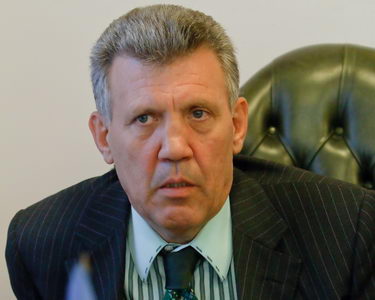At the beginning of the month an entry appeared relating to the proposed privatisation of several hundred Ukrainian State owned enterprises in the near future.
Despite the many questions raised in that entry, a core theme was that subsidies have to end post haste, along with the tradition of government bad debt write offs/forgiveness and never ending recapitilisation, all of which simply feed the oligarchy one way or another. The income from sales of these enterprises to the State budget being a secondary consideration to the savings in subsidies.
“Deoligarchisation” in Ukraine remains a very subjective thing. Not only have the oligarchy started to recover from their weakened position post Euromaidan and its immediate legacy due to a lack of reform momentum whilst the public were hungry for it and prepared for whatever pain was necessary, the oligarchy still commands an abnormal share of GDP, employment, political influence and media control. (Although like much of the media, to support loss making news it takes an oligarch to finance it.) Thus the degree of “deoligarchisation” is subjective.
Since the above entry, several of the planned privatisations for 2015 have been postponed until 2016 pending the Verkhovna Rada passing certain legislation.
There also appears to be a distinct lack of knowledge regarding how to go about privatising State assets in a transparent and competitive fashion.
“Prime Minister of Ukraine appealed to the representatives of the international community in Ukraine with the request to support the privatization process with appropriate expertise.”
This statement, technically at least, is more than a little misleading. Having spent two days at the Odessa Finance Forum with senior representatives of the NBU, Finance Ministry and major Ukrainian banks, there is certainly the expertise amongst the Ukrainian ranks to manage privatisation in a textbook “western” manner – the issue is more likely to be one of having foreign input to allay any claims of nefariousness and thus avoid the folly of previous privatisations and re-privatisations when governments changed and didn’t like the original outcomes.
Other originally scheduled privatisations remain on course for October and December 2015.
The October and December privatisations are in fact being part-privatisations – and that may very well add to the reoligarchisation of Ukraine, rather than the deoligarchisation of Ukraine.
Why?
The following announcement was made last week- “The State Property Fund of Ukraine (SPF) has once again revised the privatization schedule for 2015 and now plans to sell 25% of shares in power generating companies DTEK Dniproenergo, DTEK Zakhidenergo and Donbasenergo, and 25% of shares in Sumyoblenergo and Odesaoblenergo on the stock exchange in October.
The decision is stipulated in fund resolution No. 1345 of September 14 which was published in the Vidomosti Pryvatyzatsii newspaper.
According to the report, in November 5% of shares in Odesa Port-Side Plant, Sumykhimprom, Odesa and Kherson combined heat and power plants will be sold, along with 5% of shares in Zaporizhiaoblenergo, which has not yet had any of its shares sold, and 25% of shares in DTEK Dniprooblenergo and Kyivenergo, which will be left in state ownership after privatization tenders.
The fund plans to sell 25% of shares in DTEK Donetskoblenergo, 46% of shares in Cherkasyoblenergo, and 16.537% of shares in Zasiadko Mine on the stock exchange in December.”
How does this possibly reoligarchise Ukraine?
Quite simply, aside from other sovereign governments, or those eilite large companies with close relationships and direct channels within their governments, who is going to buy a minority share in entities that will be at the directional whim of the Ukrainian government of the day?
The answer is only those that can directly influence the Ukrainian government of the day – and that remains the existing oligarchy!
As foreign governments and large foreign corporations are not likely to be excited about buying minority shares ranging from 5% to 46% in Ukrainian State owned companies with the major shareholder (Government of Ukraine) being historically either unpredictable or predatory or both (and there is nothing to suppose that cannot return with any election) it seems likely that only an oligarchy that already influences the government will have any serious interest in buying minority shares in State owned enterpirses.
After all, holding minority shares in State owned enterprises is nothing new for the oligarchy – and neither is using their influence within the Verkhovna Rada to insure that their interests overrule the interests of the State majority shareholder.
Part privatisation is like being half pregnant as far as Ukraine is concerned. It is neither one thing nor another.
It will certainly not remove the subsidies that have to stop. Neither will the bad debt write offs/debt forgiveness or recapitalisation cease. This in turn does nothing to encourage the quality management required to make many of the State owned enterprises profitable. It does little to attract genuine FDI and thus provide for new foreign market entrants to dilute the oligarchical influence on GDP.
As minority shares privatisation in State owned enterprises is likely to attract far more oligarchy attention than foreign attention, this in turn will lead to the reinforced perception of (nefarious) “business as usual” by way of the Ukrainian constituency perception of the current governing elites.
There is nothing wrong with Government Ukraine retaining a “golden share” to insure no sensitive asset will see shares being sold on in bulk to hostile interests (ie a “Veto” share in such circumstances), but otherwise if a State owned enterprise has been scheduled for privatisation – privatise it, at least to the point where the Ukrainian State is the minority shareholder that will then benefit from serious external interest, quality external management and technological investment.
Preferably simply privatise those State assets scheduled to be sold entirely – and make a clear break with the Soviet mental hangover relating to privatisation. Create independent regulators if necessary, and if so paranoid as to be concerned about the regulators becoming corrupt rent-seekers, place some foreigners amongst the regulator management.
Part privatisation of State owned enterprises when reforming the Ukrainian economy will probably equate to being half pregnant from the perception of foreign investors. Allowing part privatisation to become the reoligarchisation of Ukraine will be a political, economic and quite possibly social disaster.
Can being half pregnant give birth to a reformed Ukrainian economy and liberal free market? Probably not!







